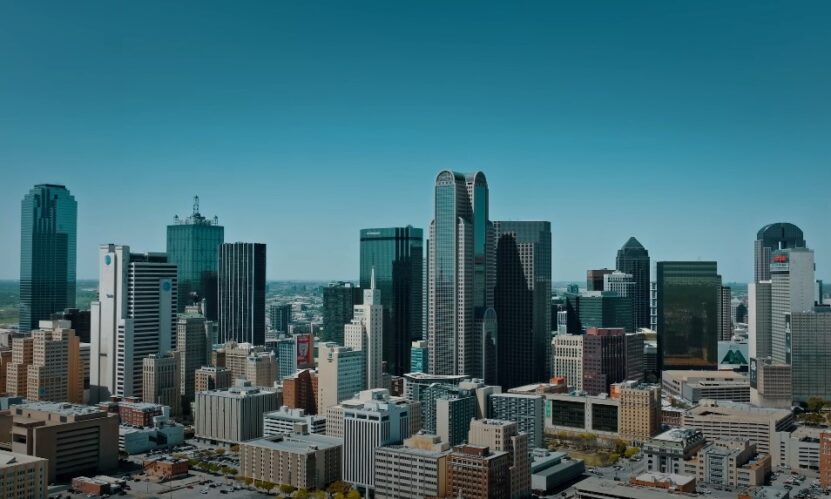So, you’re thinking about moving to Dallas, Texas? Great choice! Dallas is a bustling city with a thriving economy, rich culture, and diverse population. But before you start packing your bags, it’s essential to have a clear idea of the cost of living here.
While Dallas offers plenty of opportunities, the costs can add up depending on your lifestyle and where you choose to live. Let me break it down for you so you can have a better idea of what to expect.
Methodology
- I began by searching high-authority websites like Forbes, Payscale, and NerdWallet, gathering up-to-date and accurate information on Dallas’s cost of living.
- To ensure the credibility of the data, I cross-referenced multiple sources for consistency, especially regarding figures like housing costs and utilities.
- I categorized the data into key areas (housing, food, transportation, etc.) so that the blog would flow logically and cover the most relevant aspects of the cost of living.
1. Housing Costs

Housing is usually the most significant expense for most people, and Dallas is no exception. On average, housing in Dallas sits at around $439K for buying a home, slightly higher than the national average, according to Realtor.
While it may seem steep, it’s still a much more affordable option compared to cities like New York or Los Angeles. Rentdata stats show that, if you’re renting, expect to pay around $1,037 a month for a two-bedroom apartment.
And where you choose to live matters. If you’re looking at neighborhoods like Oak Lawn or Uptown, be prepared to pay a premium. However, areas like East Dallas offer more budget-friendly housing options without sacrificing convenience or charm.
2. Utilities
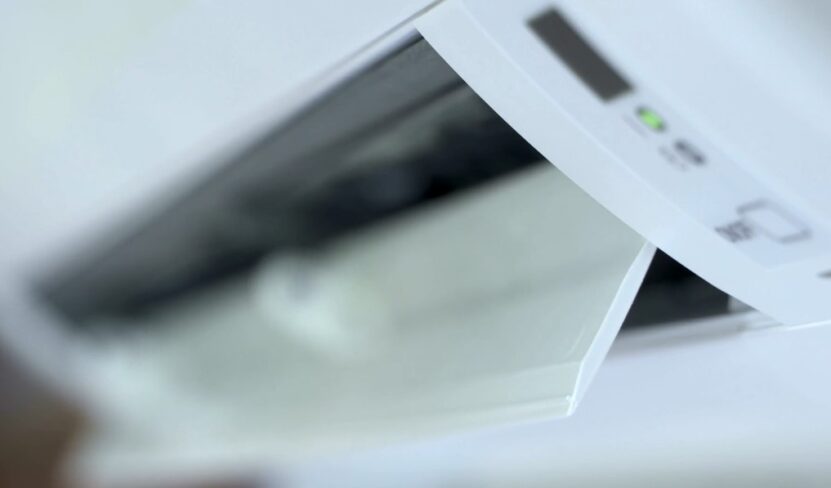
Dallas summers are no joke. With sweltering temperatures, air conditioning is not just a luxury; it’s a necessity. Utility costs here can be around 12% higher than the national average, with monthly bills ranging from $150 to $200 depending on your home’s size and the season.
That’s largely due to the extra energy consumption from keeping your home cool during the hot months. Water and garbage collection are pretty standard, but the big difference lies in your electricity bill. It’s a good idea to budget for that if you plan to move here.
The average monthly energy bill for residents is around $176.94, according to Choose Texas Power. Electricity rates in Dallas range from about 11.4 to 18.8 cents per kWh, depending on the provider.
Water bills are estimated to rise from $71.33 to $73.54 per month in late 2024, as Dallas News reports, while the total average cost of utilities in Texas is around $402 per month, including energy, water, and other essentials, as reported by SoFi.
3. Healthcare Costs

Healthcare in Dallas is relatively on par with the national average, but you’ll still want to factor it into your monthly budget. In 2024, healthcare costs in Dallas, Texas, vary depending on the type of insurance plan and coverage level.
For individuals purchasing health insurance, monthly premiums range from approximately $300 to $500, depending on the plan’s tier (bronze, silver, gold, etc.).
For instance, the most affordable plans under the Bronze category, such as the MyBlue Health Bronze, have premiums of around $299 per month, while Silver plans like MyBlue Health Silver can cost around $388 per month, according to MoneyGeek.
4. Food and Groceries
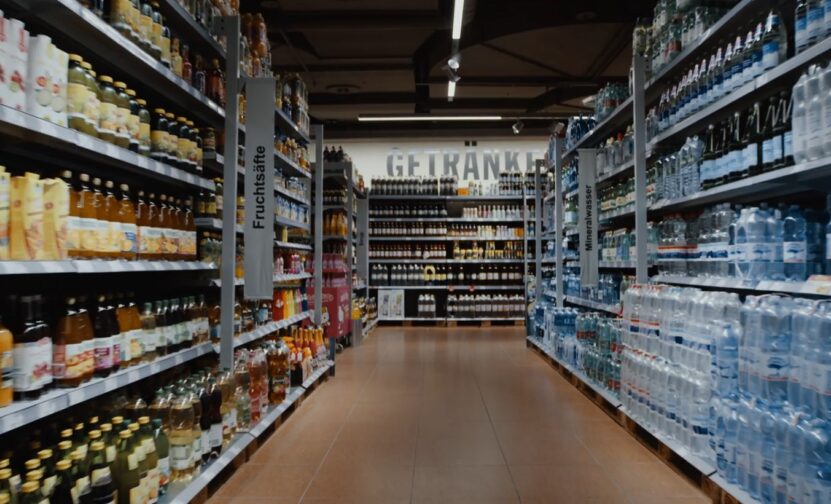
Groceries in Dallas are fairly reasonable, though prices can vary depending on where you shop.
In 2024, the cost of food and groceries in Dallas, Texas, reflects the city’s higher living costs compared to other areas. Here’s a breakdown of prices:
Grocery Prices
A single adult can expect to spend between $241 and $455 per month on groceries, according to the info provided by Evolution Moving.
Specific Grocery Items
- Milk (1 gallon): $3.63
- Bread (1 loaf): $3.05
- Potatoes (1 lb): $1.76
- Chicken breast (1 lb): $4.52
Overall Grocery Costs
Dallas ranks eighth among U.S. cities with the highest grocery bills, with an average grocery bill of $302.65 per month, as Statesman reports.
5. Transportation Costs
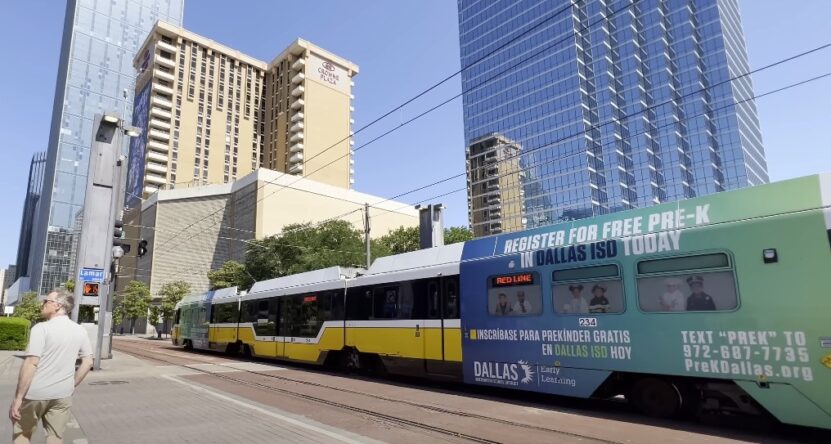
Most people in Dallas rely on their cars to get around. As of 2024, gas prices in Dallas, Texas, are fluctuating around $2.89 per gallon for regular unleaded fuel. This is in line with statewide averages of $2.95 per gallon, as reported by AAA.
Texas has seen a decrease in gas prices compared to previous years, with some forecasts suggesting that prices may even drop below $3 per gallon later in the fall of 2024. If you’re not keen on driving, Dallas Area Rapid Transit (DART) offers bus and light rail services.
It’s a cheaper alternative to owning a car, with fares around $3 per day. That said, the DART system mainly serves downtown and a few outer areas, so depending on where you live, public transit may or may not be a viable option for you.
Some Helpful Pointers
- Parking in downtown Dallas can be pricey, so factor that in if you’re working in the city center.
- Live near a DART station if you want to take advantage of public transit.
6. Entertainment and Recreation
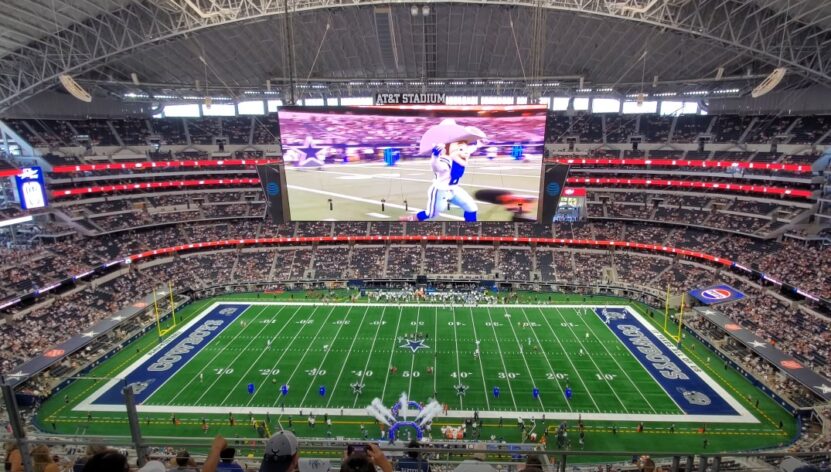
Dallas offers plenty of ways to have fun. From sports to live music, theaters, and museums, there’s always something to do. Just keep in mind, entertainment comes at a price.
A movie ticket costs around between $12 and $15, and attending concerts or sporting events can cost anywhere between $50 to $200 depending on the event and venue.
Gym memberships hover around $50 to $60 per month, but if you’re more budget-conscious, there are definitely cheaper options available. Plus, outdoor enthusiasts will appreciate Dallas’s numerous parks and green spaces, which are free!
Sporting Events
According to SeatGeek, the prices for sporting events in Dallas are:
- Dallas Cowboys (NFL): Prices start around $30 for regular season games.
- Dallas Mavericks (NBA): Tickets are available from $25.
- Texas Rangers (MLB): Tickets can be purchased starting at $20.
- Dallas Stars (NHL): Prices begin at $25.
- FC Dallas (MLS): Tickets for soccer matches typically start at $50.
- Dallas Wings (WNBA): Tickets start around $35.
Concerts
Concert ticket prices in Dallas vary widely depending on the artist and venue, but general prices start around $40 for smaller venues and can go upwards for larger events and major artists, as per Ticketmaster.
7. Taxes
Avalara reports that in 2024, the combined sales tax rate for Dallas, Texas, remains at 8.25%. This figure includes the Texas state tax of 6.25%, and Dallas’s local tax of 1.0%, along with additional county or special district taxes, if applicable.
This rate is consistent with the previous years’ rates for the area. For property taxes, the City of Dallas has proposed a reduction in the property tax rate from 73.57 cents per $100 valuation to 70.47 cents, which is a cut of 3.1 cents.
This is a significant move as property values in the area have continued to rise, with the total certified value of properties increasing by 8.5% from 2023 to 2024.
Financial Highlight
- No state income tax can lead to significant savings, especially if you’re coming from a high-tax state like California or New York.
8. Childcare and Education Costs

If you’ve got little ones, childcare can be a significant expense. Here’s a breakdown of everything you need to have in mind: Infant Childcare The average starting rate for infant care in Dallas is around $20.72 per hour as of September 2024, according to Care.
General Childcare
Care also reports that the average rate for childcare providers in Dallas starts at $19.48 per hour. For full-time care, this amounts to approximately $2,532 per month.
Daycare and Preschool
In Dallas-Fort Worth, monthly tuition for daycare and preschool ranges from about $800 to $1,400. Costs will vary depending on the facility and services provided.
Pre-K Education
For families opting for Dallas ISD tuition-based Pre-K, the cost for the 2023-2024 school year is set at $5,000 annually, or around $500 per month, Dallas ISD reports.
9. Miscellaneous Costs

Of course, there are always the smaller, everyday costs that can add up. Haircuts, for example, will set you back between $25 and $40, depending on the salon.
Dry cleaning costs around $8 for a pair of pants. While these expenses aren’t deal breakers, it’s helpful to have a little cushion in your budget for life’s regular, day-to-day costs.
Final Thoughts
Dallas can be a fantastic place to live. It’s a city with endless opportunities for work, culture, and entertainment. But like anywhere else, it’s important to plan your budget carefully to ensure that your lifestyle aligns with what the city offers.
Housing can be a little on the pricey side, but no state income tax and moderate prices on food, transportation, and entertainment can help balance things out.
If you’re planning a move to Dallas, take time to consider the various factors—housing, utilities, healthcare, and the extras. That way, you can settle in comfortably and enjoy everything this vibrant city has to offer!

